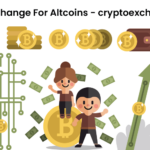Tokenization Success Stories: Real-World Examples
Tokenization has revolutionized the way assets are represented, traded, and owned. By transforming traditional assets into digital tokens, businesses and individuals can unlock new revenue streams, enhance liquidity, and increase transparency. In this article, we’ll explore Tokenization Success Stories: Real-World Examples.
1. Maecenas – Art Tokenization
Maecenas, a blockchain-based art investment platform, tokenized a $5.5 million artwork by Andy Warhol. This pioneering project demonstrated art tokenization’s potential for democratizing access to high-value art investments.
2. Real Estate Tokenization – PropertyClub
PropertyClub, a real estate platform, tokenized a $1.2 million property in New York City. This project showcased tokenization’s ability to fractionalize ownership, increase liquidity, and reduce barriers to real estate investment.
3. Securities Tokenization – Overstock
Overstock, an e-commerce giant, issued a $1.9 billion security token offering (STO) through its subsidiary, tZERO. This landmark deal demonstrated tokenization’s potential for transforming traditional securities markets.
4. Commodities Tokenization – Pax Gold
Pax Gold, a gold-backed token, allows investors to own and trade gold without physical storage concerns. With over $100 million in tokenized gold, Pax Gold has become a leading example of commodity tokenization.
5. Intellectual Property Tokenization – Reveel
Reveel, a music rights management platform, tokenized music royalties for artists. This innovative approach enables artists to monetize their intellectual property more efficiently and transparently.
Benefits of Tokenization
These success stories highlight tokenization’s benefits:
– Increased liquidity
– Fractional ownership
– Enhanced transparency
– Improved accessibility
– New revenue streams
Conclusion
Tokenization has transformed various industries, from art to real estate to securities. These success stories demonstrate the potential for tokenization to create new opportunities, enhance efficiency, and democratize access to previously inaccessible markets.






















0 Comments